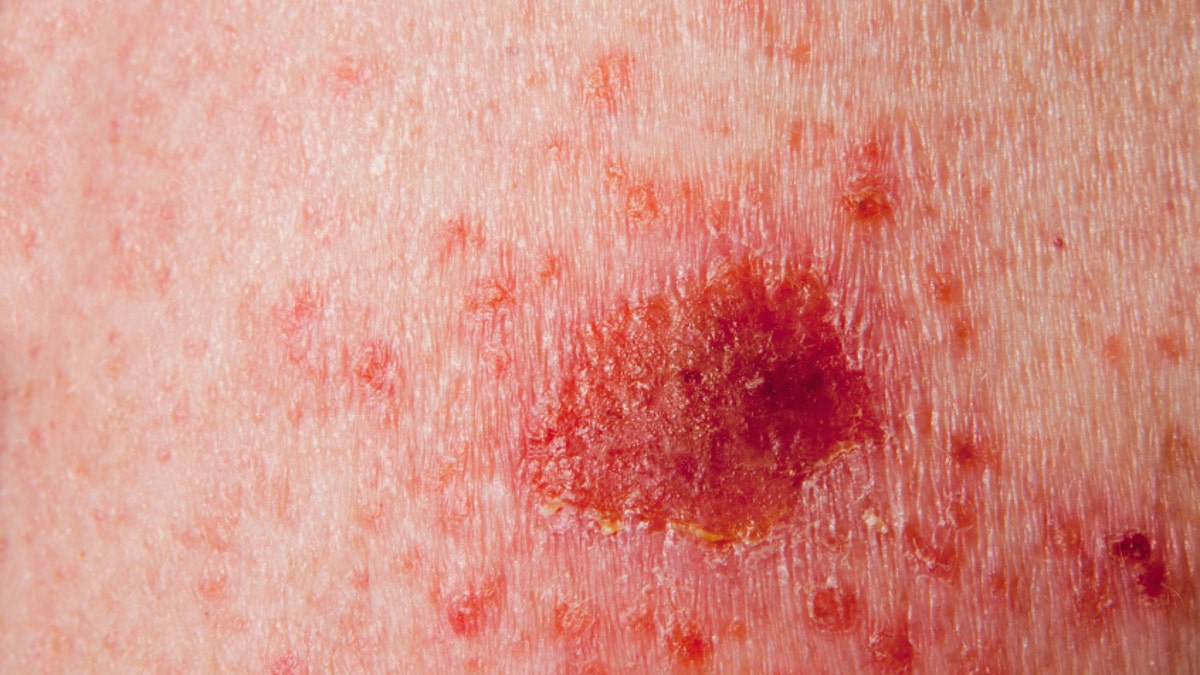
Close up of a basal cell carcinoma skin cancer. (istock)
Itching and pain on suspicious skin lesions may indicate that the area is cancerous, according to new research from Temple University in Philadelphia.
In a new study published in JAMA Dermatology, researchers studied 339 laboratory-confirmed skin cancer lesions from 268 patients at Wake Forest University Baptist Medical Center in N.C. The patients were asked to rate any pain and itching associated with their skin lesion. Researchers found that nearly 37 percent of skin cancer lesions are accompanied by itching, while 28.2 percent involved pain.
For doctors, this finding could change how they address patients’ symptoms.
“It’s not that the patient is now responsible, but the doctor is responsible. If he suspects a lesion is cancerous, [he should] ask these questions,” lead study author Dr. Gil Yosipovitch, chairman of the department of dermatology at Temple, told FoxNews.com. “It’s not a sophisticated device, just a simple question that gives you additional information and would be confirmed by histology.”
Pain and itching were more prevalent in patients with non-melanoma skin cancers. Patients with squamous cell carcinoma (SCC) experienced more pain, while those with basal cell carcinoma (BCC) complained more about itching. According to the Skin Cancer Foundation, an estimated 700,000 cases of SCC and an estimated 2.8 million cases of BCC— the most frequently occurring form of skin cancer— are diagnosed each year in the United States.
In a clinical setting, these findings could be helpful in a number of scenarios. When treating older patients with many skin lesions or transplant patients who are susceptible to skin cancer, doctors can better focus on the more serious lesions that are itchy or painful.
Yosipovitch noted that lesions that are aggressively painful or itchy may indicate a more aggressive form of cancer. Itching comes from the nerve fibers in the upper layers of skin, where basal cell carcinomas are usually found. Squamous cell carcinomas can penetrate deep into the skin and form ulcers, causing more pain.
However, the findings should not be a replacement for other diagnostic tests, as the lesions should be removed and observed under a microscope by a pathologist.
“We don’t want to cause a frenzy that every person who has a mole has cancer,” Yosipovitch said. “Actually, those cases of basal cell carcinoma suspected by the doctor, if they have pain or itching, should take it more seriously.”








































